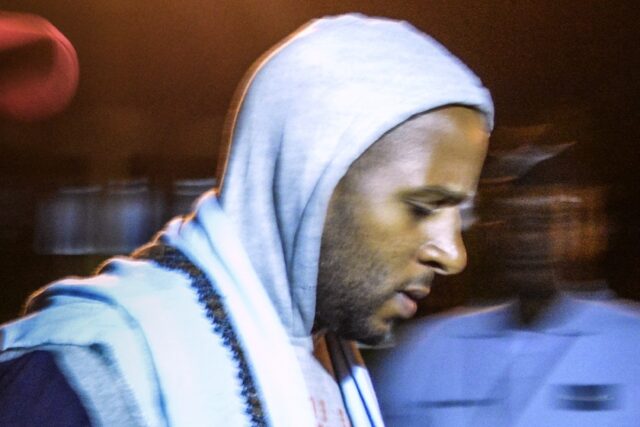A French jihadist close to the brothers behind the 2015 massacre at satirical magazine Charlie Hebdo was on Thursday sentenced to life imprisonment.
Peter Cherif, 42, had been on trial in Paris since mid-September for “belonging to a criminal terrorist association” while fighting for Al-Qaeda in the Arabian Peninsula (AQAP) in Yemen from 2011 to 2018.
During that time he is suspected of training his Paris childhood friend Cherif Kouachi, who along with his brother Said perpetrated the January 7, 2015 massacre at Charlie Hebdo’s offices in the French capital — for which AQAP later claimed responsibility.
The trial judge sentenced Cherif to life behind bars, with a minimum of 22-years to be served.
The president of the court said the decision had been taken “in view of the seriousness of the acts” for which Cherif was convicted.
Prosecutors had called him the “architect” of the first in a string of attacks carried out by radical Islamists that hit France in the late 2010s.
The 12 killings at the magazine shocked the world and led to an international outpouring of political and popular support under the motto “Je suis Charlie” (“I am Charlie”).
Cherif also was accused of being part of a criminal gang that held three French aid workers hostage for five months in Yemen in 2011.
Calling the accused a “jihadist through-and-through” who was the “cornerstone of planning” for the Charlie Hebdo attack, prosecutors on Wednesday had requested a life sentence.
Cherif declined to answer questions throughout most of the trial.
But he admitted standing guard over the aid workers and serving as an interpreter between them and Yemeni Al-Qaeda members.
Cherif has consistently denied playing any role in the attack on Charlie Hebdo or knowing it would happen.
Prosecutors believe he was in on the plan and remained in contact with Cherif Kouachi once the attacker returned to France.
“I feel like I’ve taken part in a rigged match,” Cherif’s defence lawyer Nabil El Ouchikli said on Thursday, pointing out that the defendant was not charged with complicity in the Charlie Hebdo attack.
He argued that prosecutors had resorted to the catch-all charge of terrorist association because “they didn’t have the proof” for specific offences.
Cherif himself on Thursday said that he had “nothing to add” after his representatives’ closing arguments.

COMMENTS
Please let us know if you're having issues with commenting.